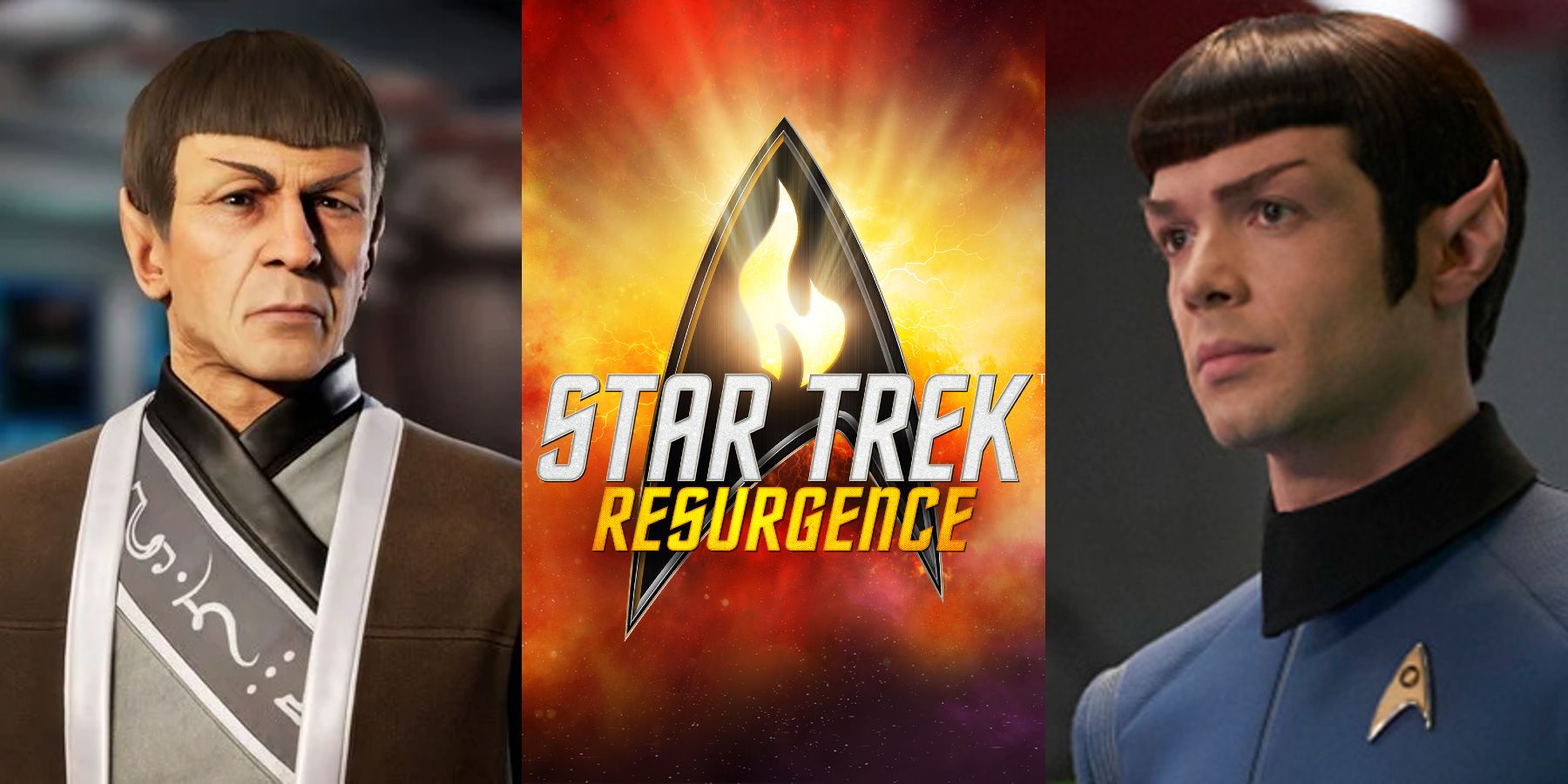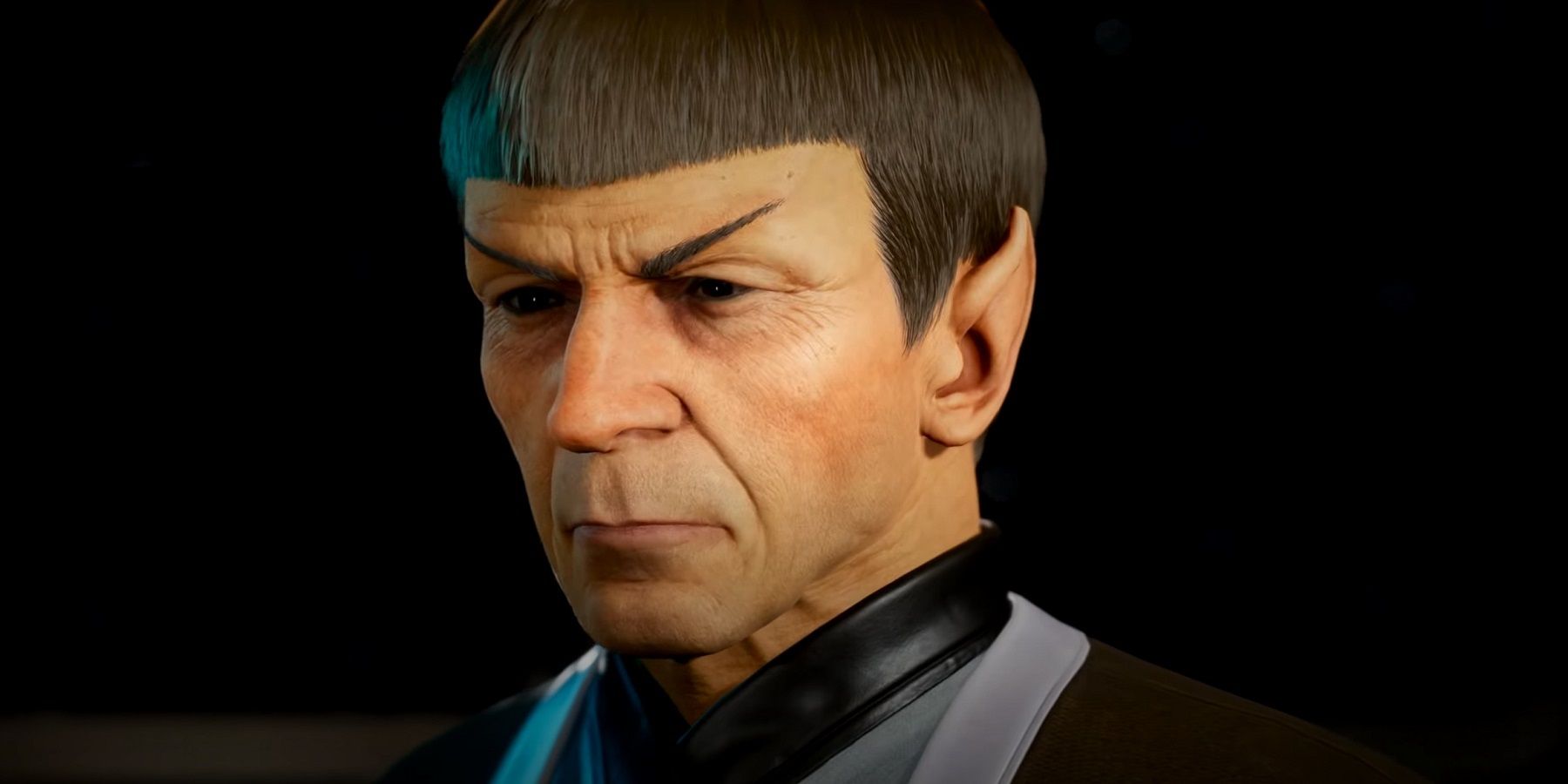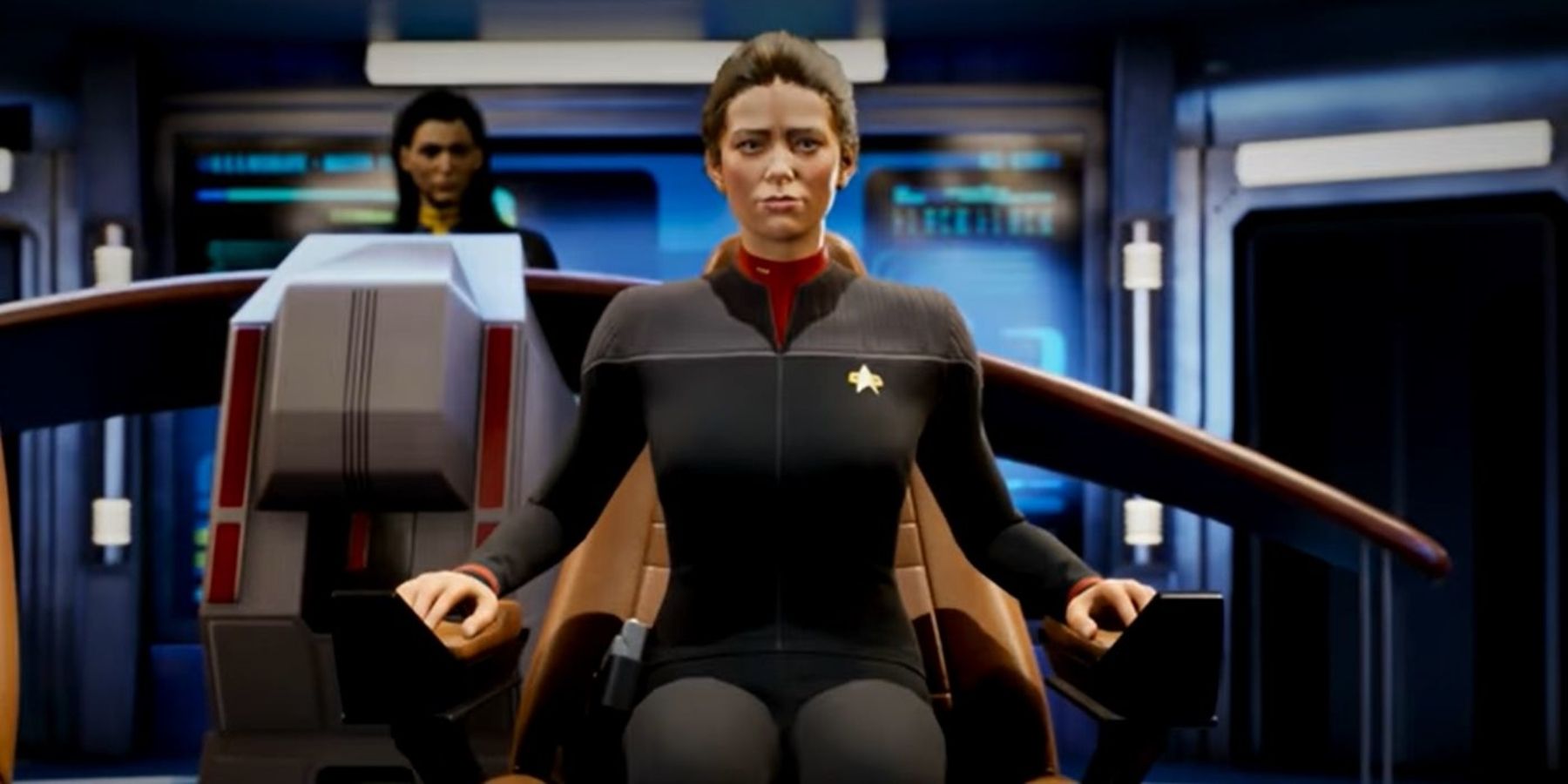The original Star Trek series began airing in 1966, and the phenomenon it kicked off is still going strong. Between the 1980s and 2000s, fans received four live-action shows: The Next Generation, Deep Space Nine, Voyager, and Enterprise. After more than a decade, Star Trek has become a major draw for Paramount's streaming service with five series (both live-action and animated) in concurrent production: Discovery, Picard, Lower Decks, Prodigy, and the recently started Strange New Worlds. Alongside this content comes other ventures like Dramatic Labs' Star Trek: Resurgence.
Dramatic Labs includes Telltale Studios veterans, and Star Trek: Resurgence will be a "narrative adventure" game with branching choices similar to Telltale's popular works. Few Star Trek video games have seen more success than the MMO Star Trek Online, which lets fans explore its expansive sci-fi universe and meet popular characters, but Resurgence could be a great blend of genre and source material. Fans know that an older Ambassador Spock will appear, and based on Resurgence's place in the series' timeline it should focus more on telling these kinds of continuing stories rather than setting up future events.
Star Trek: Resurgence's Place in the Timeline
According to Star Trek: Resurgence's official website, the game will take place in 2380 - a year after the events of The Next Generation film Nemesis. This sets it after the events of Deep Space Nine and Voyager, but about 20 years before Patrick Stewart reprises the role of Jean-Luc Picard in the self-titled Paramount+ series Picard. As a result, Spock appearing in the game sets a precedent for cameo characters in Resurgence.
However, Resurgence may not delve too deep into this well given it aims to tell its own story in the Star Trek universe. Players will follow a handful of crewmembers on the U.S.S. Resolute as they aim to keep the peace between two alien civilizations on the brink of war. The 1980s and 90s-era Star Trek properties deal with similar themes, from conflicts with the Borg to Deep Space Nine's Dominion War, so additional cameos could make sense. If so, more recent pieces of Star Trek media show why bringing characters back from earlier time periods works better than exploring a future character's history.
Star Trek: Resurgence Should Avoid the Problem With Prequels
A lot of properties struggle to develop prequels. Not only do they present the constraint of having to end at an established status quo, but bigger fandoms are also more likely to nitpick the handling of certain characters and timelines. Fellow sci-fi franchise Star Wars is a good case study, as the prequel trilogy (Episode 1 to 3) dovetails well into A New Hope, but depictions of a younger Anakin Skywalker tend to strain against his future as popular antagonist Darth Vader.
A lot of modern Star Trek shows are, in essence, prequels. Where a show like Star Trek Enterprise from the 2000s stands alone by exploring the early history of Gene Roddenberry's Federation through Captain Archer, Paramount+'s Discovery and Strange New Worlds are more immediate prequels that take place before The Original Series. Characters like Spock and Nyota Uhura play prominent roles that help flesh out their histories, but run the risk of feeling like retcons. It's hard to hold 1960's Star Trek responsible for not mentioning Spock's human sister who traveled into the future to save humanity, a plot point from Discovery, but fans who enjoy the whole gammut of shows may find it harder to separate those details in hindsight.
With that in mind, projects like Resurgence have a much easier time using characters such as Spock. Cameos that act as a sequel to someone's story can work under the assumption that their history is written and can be built upon, rather than trying to retrofit new ideas into set constraints. If more characters do appear in the upcoming game, Dramatic Labs would be better off pulling from Deep Space Nine and Voyager than trying to set up arcs from series like Picard.
Star Trek: Resurgence is scheduled to release in 2022 for PC, PS4, PS5, Xbox One, and Xbox Series X/S.



